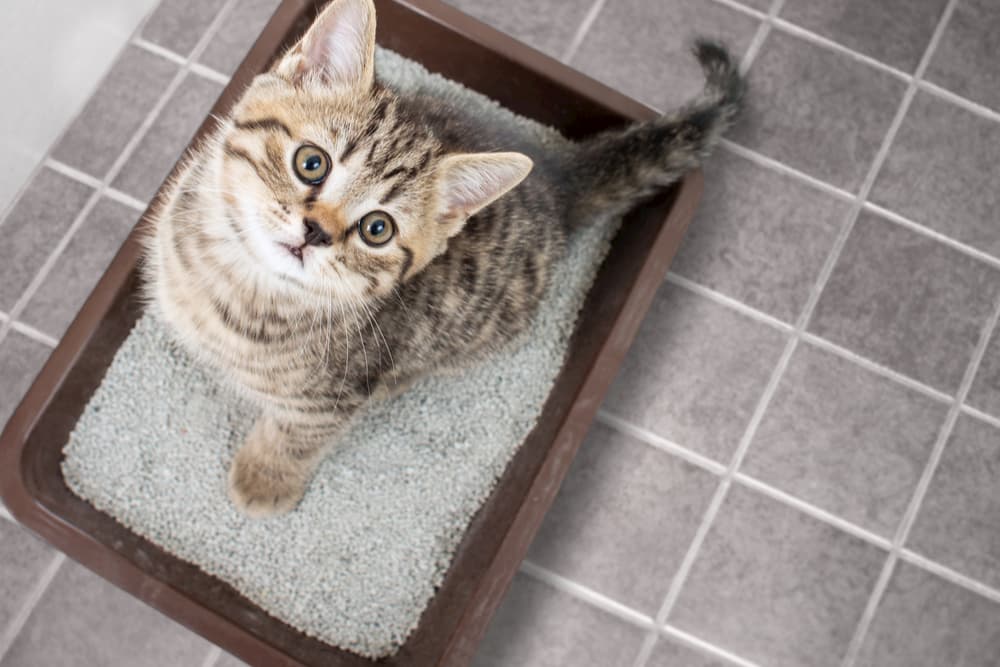Avoid Plumbing Problems: Don't Flush Cat Poop Down Your Toilet - Expert Guidance
Avoid Plumbing Problems: Don't Flush Cat Poop Down Your Toilet - Expert Guidance
Blog Article
Have you been trying to find related information Can You Flush Cat Poo or Litter Down the Toilet??

Introduction
As cat owners, it's necessary to be mindful of just how we dispose of our feline buddies' waste. While it may appear practical to flush cat poop down the commode, this practice can have destructive consequences for both the atmosphere and human health and wellness.
Alternatives to Flushing
Thankfully, there are safer and a lot more responsible means to throw away cat poop. Think about the following choices:
1. Scoop and Dispose in Trash
One of the most typical approach of taking care of feline poop is to scoop it right into a naturally degradable bag and throw it in the trash. Be sure to make use of a devoted trash inside story and throw away the waste immediately.
2. Usage Biodegradable Litter
Go with biodegradable feline trash made from products such as corn or wheat. These litters are eco-friendly and can be securely taken care of in the garbage.
3. Bury in the Yard
If you have a yard, consider burying feline waste in an assigned location away from veggie gardens and water resources. Make sure to dig deep sufficient to avoid contamination of groundwater.
4. Install a Pet Waste Disposal System
Purchase a pet dog garbage disposal system particularly made for cat waste. These systems utilize enzymes to break down the waste, lowering smell and ecological effect.
Health and wellness Risks
Along with ecological issues, purging cat waste can also present health risks to humans. Pet cat feces may consist of Toxoplasma gondii, a parasite that can trigger toxoplasmosis-- a potentially extreme illness, specifically for expectant women and people with damaged body immune systems.
Ecological Impact
Flushing pet cat poop presents harmful virus and bloodsuckers right into the water system, posturing a substantial risk to aquatic ecological communities. These impurities can negatively affect aquatic life and concession water high quality.
Final thought
Responsible pet possession prolongs past giving food and shelter-- it also includes correct waste monitoring. By refraining from flushing feline poop down the commode and going with alternate disposal approaches, we can reduce our ecological footprint and safeguard human health and wellness.
Why Can’t I Flush Cat Poop?
It Spreads a Parasite
Cats are frequently infected with a parasite called toxoplasma gondii. The parasite causes an infection called toxoplasmosis. It is usually harmless to cats. The parasite only uses cat poop as a host for its eggs. Otherwise, the cat’s immune system usually keeps the infection at low enough levels to maintain its own health. But it does not stop the develop of eggs. These eggs are tiny and surprisingly tough. They may survive for a year before they begin to grow. But that’s the problem.
Our wastewater system is not designed to deal with toxoplasmosis eggs. Instead, most eggs will flush from your toilet into sewers and wastewater management plants. After the sewage is treated for many other harmful things in it, it is typically released into local rivers, lakes, or oceans. Here, the toxoplasmosis eggs can find new hosts, including starfish, crabs, otters, and many other wildlife. For many, this is a significant risk to their health. Toxoplasmosis can also end up infecting water sources that are important for agriculture, which means our deer, pigs, and sheep can get infected too.
Is There Risk to Humans?
There can be a risk to human life from flushing cat poop down the toilet. If you do so, the parasites from your cat’s poop can end up in shellfish, game animals, or livestock. If this meat is then served raw or undercooked, the people who eat it can get sick.
In fact, according to the CDC, 40 million people in the United States are infected with toxoplasma gondii. They get it from exposure to infected seafood, or from some kind of cat poop contamination, like drinking from a stream that is contaminated or touching anything that has come into contact with cat poop. That includes just cleaning a cat litter box.
Most people who get infected with these parasites will not develop any symptoms. However, for pregnant women or for those with compromised immune systems, the parasite can cause severe health problems.
How to Handle Cat Poop
The best way to handle cat poop is actually to clean the box more often. The eggs that the parasite sheds will not become active until one to five days after the cat poops. That means that if you clean daily, you’re much less likely to come into direct contact with infectious eggs.
That said, always dispose of cat poop in the garbage and not down the toilet. Wash your hands before and after you clean the litter box, and bring the bag of poop right outside to your garbage bins.
https://trenchlesssolutionsusa.com/why-cant-i-flush-cat-poop/

Do you enjoy reading about Don’t flush cat feces down the toilet? Create a review down below. We would be interested to find out your opinion about this content. In hopes that you come back again before long. So long as you appreciated our post plz make sure you remember to pass it around. Thanks a lot for your time spent reading it.
Check It Out Report this page